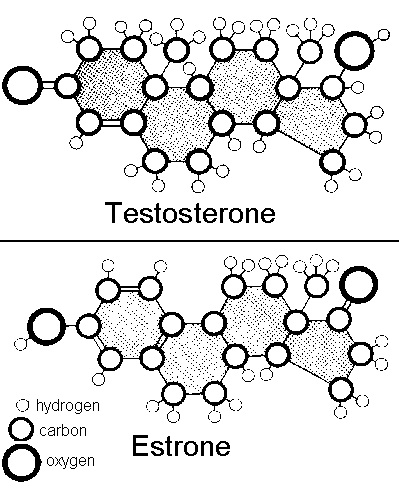 In de New York Times twee artikelen over het verband tussen borstkanker en hormonen tegen de overgang. Sinds dergelijke hormonen minder vaak, of in lagere doseringen, worden voorgeschreven is de stijgende lijn in het aantal gevallen van borstkanker voor het eerst in jaren gedaald. Niet dat alle vormen van borstkanker daarmee zijn verklaard, De Amazones zijn daar het levend bewijs van, maar toch.
In de New York Times twee artikelen over het verband tussen borstkanker en hormonen tegen de overgang. Sinds dergelijke hormonen minder vaak, of in lagere doseringen, worden voorgeschreven is de stijgende lijn in het aantal gevallen van borstkanker voor het eerst in jaren gedaald. Niet dat alle vormen van borstkanker daarmee zijn verklaard, De Amazones zijn daar het levend bewijs van, maar toch.
Om op de site van de NYT te lezen moet je je (gratis) registeren.
Sharp Drop in Rates of Breast Cancer Holds
By GINA KOLATA
Published: April 19, 2007
Breast cancer rates fell sharply in 2003, and the lower rate remained in 2004, researchers are reporting today. The finding, they say, fits with a hypothesis they advanced last December when they had data only from 2003. At that time, national data showed that breast cancer rates fell by nearly 15 percent in the 18 months from July 2002 through December 2003.
The most likely reason for the fall in rates, the investigators, led by Donald A. Berry of M. D. Anderson Cancer Center in Houston, said, was that large numbers of women stopped taking hormone therapy for menopause. And that therapy, a combination of estrogen and progestins, can increase the incidence of breast cancer. Now, with the 2004 data, the researchers say the effect is less likely to be an anomaly. If rates had gone up again, they explain, it would have meant that their hypothesis was incorrect.
The analysis relied on ‘statistical sleuthing,’ said Dr. Berry, head of the division of quantitative sciences at M.D. Anderson and senior author of the paper published today in The New England Journal of Medicine. Over all, in 2003 and 2004, there were nearly 10 percent fewer breast cancer cases than expected. It is the first substantial drop in breast cancer incidence in more than a quarter century. And it involved women age 50 and older, not younger women, and nearly all the decline was in the common type of breast cancer, fed by estrogen, the so-called estrogen-receptor-positive tumors.
(lees hier verder – je kunt je gratis registreren.)
Hormones Can Raise Breast Cancer Risk
By THE ASSOCIATED PRESS
Published: April 19, 2007
ATLANTA (AP) — Research on two continents signaled more bad news for menopause hormones, offering the strongest evidence yet that they can raise the risk of breast cancer and are tied to a slightly higher risk of ovarian cancer. New U.S. government numbers showed that breast cancer rates leveled off in 2004 after plunging in 2003 — the year after millions of women stopped taking hormones because a big study tied them to higher heart, stroke and breast cancer risks. Experts said the leveling off shows that the 2003 drop in the cancer rate was real and not a fluke.
From 2001 to 2004, breast cancer rates fell almost 9 percent — a dramatic decline, researchers report in Thursday’s New England Journal of Medicine. The trend was even stronger for the most common form of the disease — tumors whose growth is fueled by hormones. Those rates fell almost 15 percent among women ages 50 to 69, the group most likely to have been on hormone pills. At the same time, a study of nearly 1 million women in the United Kingdom showed that those who took hormones after menopause were 20 percent more likely to develop ovarian cancer or die from it than women who never took the pills. That study was published online by the London-based journal The Lancet.
For consumers, the new research doesn’t change the advice to use the lowest dose for the shortest time possible for hot flashes and other menopause symptoms that can’t otherwise be controlled. For cautious scientists, the new breast cancer numbers were more evidence of the hormone-breast cancer link.
(lees hier verder.)
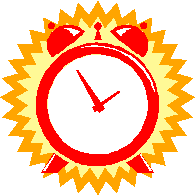 Al geruime tijd horen we dat de invoering van het elektronisch patiëntendossier (EPD) het aantal fouten in de medische sector dramatisch zal reduceren. Nu heb ik daar zo mijn twijfels over, ook al omdat beleidsmakers er niet bij stil staan dat elke techniek zijn eigen fouten genereert en het EPD zelf ook medische missers zal veroorzaken. Daarnaast geloof ik nooit zo in techniek alleen als de oplossing; dat is een soort van technologisch optimisme dat keer op keer de mist in gaat.
Al geruime tijd horen we dat de invoering van het elektronisch patiëntendossier (EPD) het aantal fouten in de medische sector dramatisch zal reduceren. Nu heb ik daar zo mijn twijfels over, ook al omdat beleidsmakers er niet bij stil staan dat elke techniek zijn eigen fouten genereert en het EPD zelf ook medische missers zal veroorzaken. Daarnaast geloof ik nooit zo in techniek alleen als de oplossing; dat is een soort van technologisch optimisme dat keer op keer de mist in gaat. Bij
Bij  In de New York Times twee artikelen over het verband tussen borstkanker en hormonen tegen de overgang. Sinds dergelijke hormonen minder vaak, of in lagere doseringen, worden voorgeschreven is de stijgende lijn in het aantal gevallen van borstkanker voor het eerst in jaren gedaald. Niet dat alle vormen van borstkanker daarmee zijn verklaard,
In de New York Times twee artikelen over het verband tussen borstkanker en hormonen tegen de overgang. Sinds dergelijke hormonen minder vaak, of in lagere doseringen, worden voorgeschreven is de stijgende lijn in het aantal gevallen van borstkanker voor het eerst in jaren gedaald. Niet dat alle vormen van borstkanker daarmee zijn verklaard,  Zes uur. Katten eten gegeven en gauw even kijken naar Judging Amy. Mentale aantekening maken om de quote van Dorothy Parker die in het programma voorbijkwam – ‘Writing is the art of applying the ass to the seat’ – in mijn signature file op te nemen. Afgeleid worden door peristaltische geluiden uit de keuken. Michael schrokt tegenwoordig zijn eten op en gaat als zijn eigen bakje half leeg is kijken of er bij Tweety nog iets valt te halen, met als effect dat Tweety ook gaat schrokken. want Michael eet simpelweg sneller en op is op. (Duh. Er staan áltijd brokjes.)
Zes uur. Katten eten gegeven en gauw even kijken naar Judging Amy. Mentale aantekening maken om de quote van Dorothy Parker die in het programma voorbijkwam – ‘Writing is the art of applying the ass to the seat’ – in mijn signature file op te nemen. Afgeleid worden door peristaltische geluiden uit de keuken. Michael schrokt tegenwoordig zijn eten op en gaat als zijn eigen bakje half leeg is kijken of er bij Tweety nog iets valt te halen, met als effect dat Tweety ook gaat schrokken. want Michael eet simpelweg sneller en op is op. (Duh. Er staan áltijd brokjes.)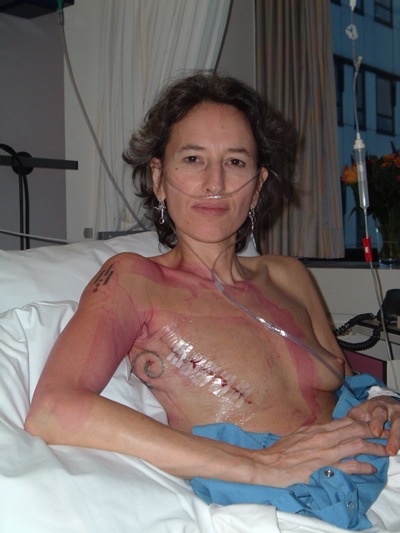 Een jaar geleden werd mijn borst eraf gesneden.’Ben ik een borst kwijtgeraakt’ vind ik een raar eufemisme: alsof ik die borst ergens heb neergelegd en – heel slordig – ben vergeten waar, maar ‘m morgen of volgende maand nog kan terugvinden, onderin het keukenkastje bijvoorbeeld, of anders misschien op een plank in de berging. De uitdrukking klinkt ook te netjes, te weinig fysiek, hij ontkent de kerf in mijn vlees, negeert dat me iets is afgenomen, dat ik nog maandenlang alleen maar bloeduitstortingen had waar eens een rechterborst zat.
Een jaar geleden werd mijn borst eraf gesneden.’Ben ik een borst kwijtgeraakt’ vind ik een raar eufemisme: alsof ik die borst ergens heb neergelegd en – heel slordig – ben vergeten waar, maar ‘m morgen of volgende maand nog kan terugvinden, onderin het keukenkastje bijvoorbeeld, of anders misschien op een plank in de berging. De uitdrukking klinkt ook te netjes, te weinig fysiek, hij ontkent de kerf in mijn vlees, negeert dat me iets is afgenomen, dat ik nog maandenlang alleen maar bloeduitstortingen had waar eens een rechterborst zat.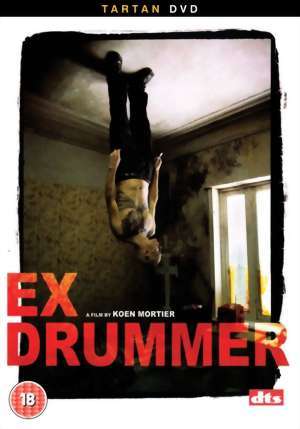 Vanavond in de sneak:
Vanavond in de sneak: 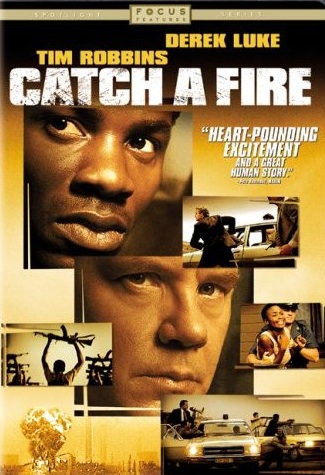 Gisteren was
Gisteren was  Gisteren uitgebreid opgeruimd in de boekenkast. Die was bomvol, overal in huis lagen stapeltjes boeken die er niet meer in pasten en puilden paperassen uit de kast. Vijftien planken leeggehaald en schoongemaakt, alle boeken stuk voor stuk bekeken en het stof eraf geblazen, eruit gehaald wat inmiddels echt nooit meer gelezen zal worden en die klaargelegd voor opname in het
Gisteren uitgebreid opgeruimd in de boekenkast. Die was bomvol, overal in huis lagen stapeltjes boeken die er niet meer in pasten en puilden paperassen uit de kast. Vijftien planken leeggehaald en schoongemaakt, alle boeken stuk voor stuk bekeken en het stof eraf geblazen, eruit gehaald wat inmiddels echt nooit meer gelezen zal worden en die klaargelegd voor opname in het  Altijd gedacht dat afvallen, sporten en stoppen met roken helpen om de kosten van de gezondheidszorg te beteugelen? Think again. Wie even nadacht wist al dat dit een drogredenering is. Langer leven is juist duurder: de gewonnen jaren worden gewoonlijk in afhankelijkheid en met veel gedokter doorgebracht. Het Rijksinstituut voor Volksgezondheid en Milieu (RIVM) bevestigde dat afgelopen week weer eens. Uit Medisch Contact van deze week:
Altijd gedacht dat afvallen, sporten en stoppen met roken helpen om de kosten van de gezondheidszorg te beteugelen? Think again. Wie even nadacht wist al dat dit een drogredenering is. Langer leven is juist duurder: de gewonnen jaren worden gewoonlijk in afhankelijkheid en met veel gedokter doorgebracht. Het Rijksinstituut voor Volksgezondheid en Milieu (RIVM) bevestigde dat afgelopen week weer eens. Uit Medisch Contact van deze week: